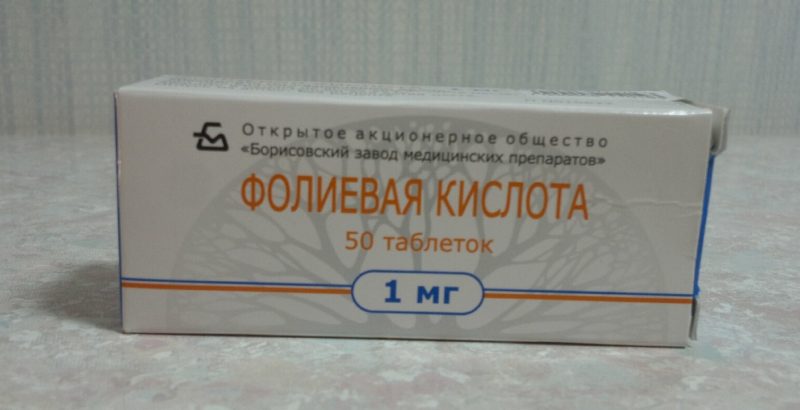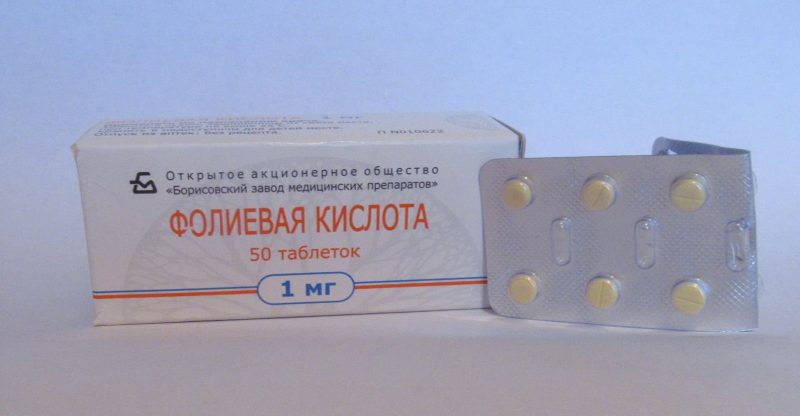Many do not know why folic acid is needed. As a rule, the future mothers and women who are soon planning the birth of a baby have heard most about her benefits. But this does not mean that such an important element is not needed by other categories of the population.
Material Content:
What is folic acid needed for?
The common name for folic acid is vitamin B9. This is one of the most necessary substances for every human body. A small amount of such an acid is produced in the intestine, but there is too little of it. Therefore, most should come from food, which becomes a problem for the average citizen. In a normal diet, there are not so many foods that contain enough folic acid, so vitamin deficiency is far from rare.
Features B9 is responsible for:
- cell growth;
- preservation of DNA integrity;
- proper functioning of the immune and nervous system;
- full synthesis of amino acids;
- the production of enzymes that prevent the appearance of tumors;
- normal hematopoiesis.
The vitamin is responsible for hematopoiesis together with cyanocobalamin (B12).
Daily requirement for women and men
The daily rate depends on age:
- babies up to six months - 65 mcg;
- babies from 6 to 12 months - 80 mcg;
- babies from 12 to 36 months - 150 mcg;
- preschoolers and schoolchildren - 200 mcg;
- adolescents and adults - approximately 400 mcg;
- expectant mothers - 700 mcg.
It is also advisable to take folic acid during the recovery period after serious injuries and surgical interventions, during professional occupations in heavy sports.
The acid level is very easy to determine by passing the appropriate analysis. Normal results can vary from 8 to 44 nmol / L.
Signs of Vitamin B9 Deficiency and Excess
Malnutrition, dysbiosis and other gastrointestinal diseases almost always lead to folacin deficiency.
The consequences are very serious:
- problems with bearing a child;
- fetal pathology;
- weakened immunity;
- infertility;
- intestinal cell atrophy;
- weight loss;
- megaloblastic anemia (a sharp decrease in the number of red blood cells);
- various cognitive impairment;
- deterioration of blood coagulation;
- depression.
In children, deficiency usually leads to a delay in physical development. According to a study conducted 4 years ago in Europe and America, the level of folacin in the blood in more than 95% of children was unsatisfactory. This is due to the fact that many of them do not eat properly or simply refuse to eat foods rich in vitamin B9.
Symptoms of deficiency appear within 1-4 weeks after a sharp decrease in the level of a substance in the blood. The first alarming calls are causeless weakness, lack of appetite, and increased irritability. These signs are rarely seen by anyone, attributing them to the effects of various external factors. After about 10-12 weeks, anemia begins to develop, which is accompanied by digestive disorders, severe hair loss, and the appearance of wounds in the oral cavity. Such people have an increased risk of developing atherosclerosis, thrombosis, and stroke.
Excessive accumulation of vitamin A in the body of a relatively healthy person is unlikely, as all that is superfluous is excreted out through the kidneys without problems. But if malfunctions are observed in the liver and excretory system, an increased amount of folacin can accumulate in the body.
This leads to the following consequences:
- increased risk of developing diabetes, allergies in the newborn;
- increase in fetal weight during pregnancy;
- a sharp increase in the likelihood of prostate neoplasms in men;
- irritability and insomnia.
Often, such people complain of a specific bitter taste of metal in the oral cavity.
What products contain
The leaders in the content of B9 are greens (spinach, lettuce, green onions) and all vegetables of a saturated green hue. Few people know that translated from Latin is a sheet. For the first time, such substances were isolated from freshly picked spinach leaves in 1941. After that, the component got its modern name. After 4 years, in the laboratory, scientists were able to synthesize the substance chemically.
To provide the body with the necessary substance, beans, germinated wheat grains, buckwheat, liver, nuts, tomatoes, lemons, and beets should be introduced into the diet.
The problem lies in the fact that folic acid is almost completely destroyed by prolonged exposure to heat. Ultimately, during heat treatment, only 10-30% of the vitamin of its original volume remains in the products. Therefore, food rich in folacin is better to eat raw. For example, you can make a real folic bomb - a salad of arugula, leaf mustard, asparagus, spinach, green onions, adding slices of tomatoes and a few nuts.
It is also necessary to take into account the fact that greens, which are grown in greenhouses, contain less B9 in comparison with crops obtained from organic gardens.
For these reasons, even a nutritious diet rich in folacin overrides the body's needs by a maximum of 80%.
Drugs That Contain Folacin
If folacin is not enough in the diet, you need to take it additionally. Folic acid tablets are the best option for people who have normal rest of vitamins.They are taken before meals according to the instructions: for treatment - up to 1 tablet, as a preventative measure - up to 0.5 pieces. The maximum concentration in the blood is observed after 40-60 minutes. Most of all, the drug is absorbed in the upper parts of the duodenum, after which it penetrates into the plasma.
It is necessary to strictly monitor the dosage. Concentrated preparations are intended for the treatment of severe forms of vitamin deficiency, but not for the prevention or slight support of its level.
Vitamin complexes are good in that they additionally contain substances that help folacin to be fully absorbed.
Supplements are available in various dosage forms: dragees, tablets, lozenges, solutions, powders, capsules. For children, you need to select the most convenient dosage form, for example, chewing pastilles in the form of animal figures.
How to take vitamin B9 medications when planning pregnancy
B9 deficiency is observed in every second representative of the weaker sex. The need for this substance increases sharply on the 17-27th day after conception, when the expectant mother still does not even know about her "interesting" position. It is during this period that a neural tube forms in the embryo. For this reason, all women planning a pregnancy are recommended to use drugs with folacin 3-5 months before the expected conception, as well as within 1 trimester of bearing a child. In the 2-3 trimester, vitamin B9 intake is most often stopped. The fact is that it can accumulate in the body and provoke a noticeable deterioration in muscle elasticity, and this badly affects the ease of labor.
When planning pregnancy, folic acid is prescribed in an amount of at least 2000-3000 mcg daily.
The standard dosage of one tablet is 1000 mcg. The minimum dose for a pregnant woman is 800 mcg, therefore, as a rule, you need to use one per day.
Interaction with other substances
Instructions for use are simple, but medicines with folacin should not be taken in combination with analgesics, antibiotics, anticonvulsants, since such a combination significantly reduces the effectiveness of the administration.
The use of the above drugs together with phenytoin reduces the expected effect from them, which requires an increase in dose.
Contraindications and side effects
Of the side effects, allergic reactions are often observed - skin rashes, itching, redness, bronchospasm. Sometimes a person complains of nausea, bloating, a feeling of an unpleasant taste in the mouth, insomnia, and irritability.
Absolute contraindications:
- intolerance;
- B12 deficiency anemia;
- lactose intolerance in any form;
- early childhood.
With caution, the drug should be used for people with oncology.
Overdose cases under the condition of normal functioning of the kidneys and liver were not observed. So that the drug harms the body, you need to take a dose several tens of times higher than the norm.
Folic acid as air is necessary for normal health and proper functioning of the body, regardless of the gender and age of the person.




















